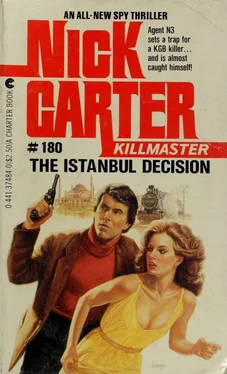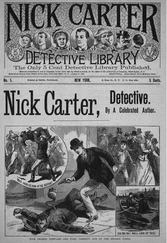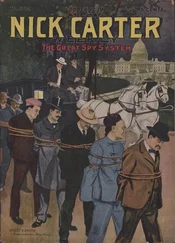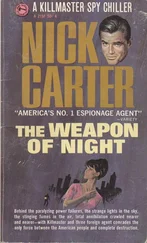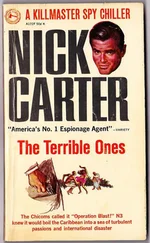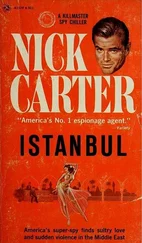Supporting herself with a gnarled hand on the altar top, she pulled herself slowly erect, turned, and eased herself into one of the wooden pews behind her. Then with a sigh she sat back and stared at the crucifix, not seeing it really, but fixing on it as the focal point of the room, and let her mind wander. As she did, a look of worry settled over her features.
What worried her was violence. She sensed it coming to St. Denis just as she had sensed it that day in 42 when the German soldier had come to say a prayer at the grotto in the garden and she'd seen the blood dripping from his coat. St. Denis was a haven then, a showplace convent for well-to-do girls who sought solace from a world that seemed to have lost its mind. The killing and the war were someplace else, in small towns to the south and east whose names were easily forgotten. Here the bells rang out four times a day, morning vespers, meals, and evening prayers, just as they had for centuries. There were smiles, even occasional laughter.
Then they'd come, their thick boots crusted with mud, streaked with red, dragging their dead and wounded with them, right through the garden, killing the flowers. They set up a hospital in the name of the Reich, and that day the bells had stopped ringing.
Sister Marie-Therese had been no more than a wide-eyed novice then — a mere girl — and although she had felt the same shame and outrage the others felt when the Germans came, she did not understand the profound sense of loss Mother Superior must have felt when she acquiesced without so much as a word of protest.
She understood it now, however, and they were coming again, these storm troopers. They wore different uniforms, spoke a different language, but they were the same selfish, unholy men who intruded, defiled, stole peace in a world where peace was on the verge of extinction.
And it all centered on this new girl on the third floor.
Russian, they'd told her. Hah! From an aristocratic émigré family in Paris. This girl was no more an aristocrat than Joan of Arc. Sister Marie-Therese had known aristocrats when she was a girl, barons and baronesses, counts and countesses, and this girl had none of their sense of responsibility to the aristocracy. She was a bore, with her penchant for American cigarettes and her nervousness she tried so hard to disguise. She spoke French like a schoolgirl and Russian like a peasant.
And yet, all in all, it wasn't the girl who worried her. It was the men who'd preceded her.
Two of them in long tweed coats, the hair along their ears and necks badly cut. They had come the day before she arrived, keeping their hands in their pockets always, the way men will do when they have something to hide. They wanted to inspect the hospital, they said. They represented a wealthy industrialist who would be paying a visit and who would need the best accommodations, especially seclusion. They'd chosen St. Denis because of it. He was a German, this master of theirs, and under a great deal of pressure, but it wasn't German with which they mangled the tongue of holy St. Augustine. It was.something more guttural, with origins further to the east.
One of them wore a gun under his coat. She'd seen it when he reached in to get a pad for making notes: a small, coal black gun that glinted in the sunlight. That was when she knew they were coming again, the killers who killed for money or country or some other false god, and she knew she could not fight them again. She was too old; she'd grown too accustomed to peace.
A pair of headlights swept the wall of the tiny chapel. Who could it be at this hour? she wondered. Then her old nun's heart began to beat wildly in her chest. It was them! The girl had been here less than a day, and they were here already! She grabbed the back of the pew with a gasp and tottered to her feet. She must stop them! She must bolt the door!
* * *
Cynthia Barnes watched the headlights break into a pattern and run across the wall. Nick! she thought excitedly.
She pulled on her robe and slid into the wheelchair. It was about time he'd got back. She had a list of complaints about this place as long as your arm, starting with that hoary old nun who badgered her night and day, and he was going to have to listen to every one of them.
She rolled to the window as the car stopped with a crunch on the gravel courtyard below. The sound gave her pause. It wasn't the sound made by a car making a leisurely call. There was an urgency in it she didn't like. It signaled danger.
Two sets of footsteps, one to the door, the other off down the drive. Around to the back? she thought. Why is Nick sending someone around to cover the back?
A second pair of headlights appeared on the wall as she heard the insistent knocking of the man at the door. Her heart leaped into her mouth. It wasn't Nick at all! The baited trap was being sprung too soon. Much too soon.
The nun at the door told the man to go away. Everyone was sleeping. The man growled something in Russian, too indistinct to hear.
Cynthia rolled to the nightstand and picked up the pack of Benson & Hedges, pulled one out, and lit it. What was she to do? Wait?
The impossibility of successfully impersonating anyone's daughter suddenly came home to her, along with all she knew of Kobelev, his ruthlessness, his wild unpredictable temper… The cigarette began to shake uncontrollably.
A soft rapping sounded at the door. "Mademoiselle, mademoiselle," came a woman's voice in a hoarse whisper.
"Who is it?"
"Sister Marie-Therese."
"Come in. Come in."
The old nun lumbered into the room. "They've come," she announced sternly.
"Who?"
"Whoever it is you're running from. They have caught up with you and you must go quietly. We cannot have any violence at the clinic. We have our other patients of which to think."
"Have I asked you for protection?" Cynthia asked coldly.
"No, you have not. But nevertheless, we want these men off the premises as soon as possible. I'll help you pack your things." She turned with the slow calculation of a battleship and began pulling clothes out of the dresser.
"You mean you'd hand me over to them even if you knew they had every intention of killing me?" Cynthia asked incredulously.
"That's no concern of mine or the clinic's. Our patients' outside lives are their own affair. There are times when even a sister of the Church must look the other way."
"Thanks a lot," mumbled Cynthia, snuffing out what was left of her cigarette.
The commotion at the front door had ceased. Now footsteps too numerous to count came tramping up the marble stairs toward the third floor.
"What if I told you they plan to kill me?"
The old woman stopped and stood still for a moment, a stack of underwear in her hand. "I would not want to know." She dropped the clothes, then bent and pulled out the lowest drawer.
"A man is with them. A Russian. A man who wants to be head of their secret police. He has killed a good many in his time, and I'm sure he won't hesitate to kill me either."
The woman stopped again, this time more briefly. "It is none of my concern," she said emphatically.
"I have friends who were going to protect me. They'll be back. You must tell them."
The old woman shook her head. "I cannot. You must not ask me."
The footsteps were in the hall.
"Dammit it, old woman, they didn't leave me a weapon."
The old nun threw the last of the clothes on the bed and glared down at Cynthia. Then her eyes softened and her lips pursed in a mass of wrinkles as though she were weighing something in her mind. A loud banging at the door made her jump.
"You're my only hope," Cynthia whispered as the old woman labored across the room to open it.
Two burly men pushed their way in, almost knocking the sister down. They wore identical black turtlenecks, and their heads had been shaved to an even stubble. One held a machine pistol on the old woman while the other quickly searched the room.
Читать дальше
